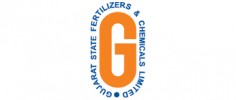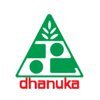Filter interviews by
Gujarat State Fertilizers & Chemicals Chemical Operator Interview Questions and Answers
Gujarat State Fertilizers & Chemicals Chemical Operator Interview Experiences
1 interview found
I applied via Company Website and was interviewed in Jul 2021. There was 1 interview round.
Interview Questionnaire
1 Question
- Q1. Chemical subject
Interview Preparation Tips
Top trending discussions






Interview questions from similar companies

I applied via Recruitment Consultant and was interviewed in May 2021. There were 3 interview rounds.
Interview Questionnaire
1 Question
- Q1. All questions ask on technical field which we have mentioned in our resume
Interview Preparation Tips

I appeared for an interview in Mar 2025, where I was asked the following questions.
- Q1. Production process
- Q2. Production plan
- Ans.
A production plan outlines the strategy for manufacturing goods efficiently and effectively.
Define production goals: Set clear, measurable objectives for output and quality.
Assess resources: Evaluate available materials, labor, and machinery to meet production needs.
Create a timeline: Develop a schedule that aligns production activities with demand forecasts.
Implement quality control: Establish procedures to ensure pro...
Interview Preparation Tips

I applied via Referral and was interviewed in Dec 2023. There was 1 interview round.
(2 Questions)
- Q1. Work experience
- Q2. Salary expectation

I applied via Recruitment Consultant and was interviewed before Aug 2020. There was 1 interview round.
Interview Questionnaire
1 Question
- Q1. About your past experience
Interview Preparation Tips

I applied via Recruitment Consultant and was interviewed in Jun 2020. There were 3 interview rounds.
Interview Questionnaire
1 Question
- Q1. Questions based on your past experience and job profile.
Interview Preparation Tips

Interview Questionnaire
1 Question
- Q1. Site engineer
Interview Preparation Tips

I appeared for an interview in Jul 2023.

(1 Question)
- Q1. Family discussion
(2 Questions)
- Q1. Personal introduction
- Q2. Your past job experience only
Interview Preparation Tips

I applied via Company Website and was interviewed in Dec 2023. There were 2 interview rounds.
Technically knowledge
(1 Question)
- Q1. Sallary discussion and company policy.

Deputy Manager Interview Questions & Answers
Coromandel Internationalposted on 17 May 2022
I appeared for an interview before May 2021.
(2 Questions)
- Q1. Tell me about yourself
- Q2. Tell me about your work experience
(1 Question)
- Q1. Tell about safety culture in your current organization
Interview Preparation Tips
Tell us how to improve this page.
Gujarat State Fertilizers & Chemicals Interviews By Designations
- Gujarat State Fertilizers & Chemicals QC Chemist Interview Questions
- Gujarat State Fertilizers & Chemicals Deputy Manager Maintenance Interview Questions
- Gujarat State Fertilizers & Chemicals Production Incharge Interview Questions
- Gujarat State Fertilizers & Chemicals Production Engineer Interview Questions
- Gujarat State Fertilizers & Chemicals Design Engineer Interview Questions
- Gujarat State Fertilizers & Chemicals Mechanical Engineer Interview Questions
- Gujarat State Fertilizers & Chemicals Junior Engineer Interview Questions
- Gujarat State Fertilizers & Chemicals Diploma Chemical Engineer Interview Questions
- Show more
Interview Questions for Popular Designations
- Chemical Engineer Interview Questions
- Diploma Chemical Engineer Interview Questions
- Chemical Process Engineer Interview Questions
- Trainee Chemical Engineer Interview Questions
- Chemical Plant Operator Interview Questions
- Chemical Analyst Interview Questions
- Junior Engineer - Chemical Interview Questions
- Chemical Graduate Engineer Trainee Interview Questions
- Show more
Interview Questions from Similar Companies
Fast track your campus placements
|
Deputy Manager
50
salaries
| ₹8.9 L/yr - ₹25 L/yr |
|
Plant Engineer
41
salaries
| ₹7.5 L/yr - ₹17.5 L/yr |
|
Plant Operator
25
salaries
| ₹1.2 L/yr - ₹3 L/yr |
|
Assistant Manager
14
salaries
| ₹12 L/yr - ₹20 L/yr |
|
QC Chemist
14
salaries
| ₹2.1 L/yr - ₹2.5 L/yr |

Aarti Industries

UPL

Coromandel International

PI Industries
- Home >
- Interviews >
- Gujarat State Fertilizers & Chemicals Interview Questions >
- Gujarat State Fertilizers & Chemicals Chemical Operator Interview Questions













